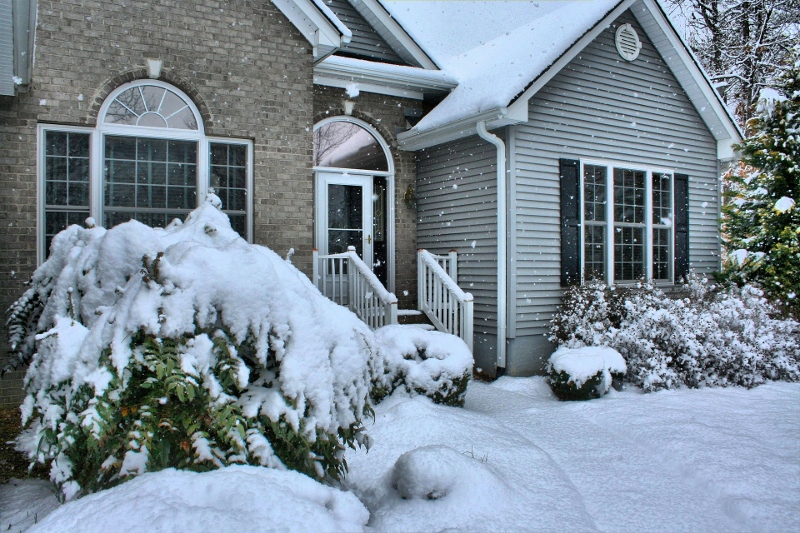Why is Radon Testing in Winter Smart?
The winter months are just around the corner, and winter means different things to different people. Some think of enjoying the snow by going out skiing or snowboarding, while others prefer to sit by a warm fire with a cup of hot chocolate. Winter also can result in increased radon levels, and is therefore an ideal time for testing. Since radon is the second leading cause of lung cancer, testing your home for radon is important. But what exactly makes radon testing in winter smart? What makes winter the ideal time for testing your home for radon?
High Radon Levels
Seasonal variations can actually affect levels of radon, or the severity of a radon problem, in your home. One reason why radon levels are higher in the winter is that windows are more often kept closed. While opening a few windows in the spring and summer will do very little to mitigate radon, the influx of outdoor air does help dilute radon gas. During winter, we keep our windows closed to stay warm, but this causes radon to become more concentrated within your home. And since people tend to stay inside more often during cold weather, radon exposure is increased too.
 The ground your home is built on becomes another issue. Radon is a naturally occurring gas found all over the world, and most often enters homes through the soil. That soil can freeze during winter, making a more difficult path to the surface for radon. Radon will take the path of least resistance to escape the ground, and that path is often right into your home.
The ground your home is built on becomes another issue. Radon is a naturally occurring gas found all over the world, and most often enters homes through the soil. That soil can freeze during winter, making a more difficult path to the surface for radon. Radon will take the path of least resistance to escape the ground, and that path is often right into your home.
Radon is also being pulled up from the ground thanks to a stack effect. In the winter, warm air will escape your house by any means, from drafty windows, vents, or any available opening. A vacuum forms and pulls air from the lower levels of your house, which is where radon most commonly enters, up through the rest of the house.
Why Radon Testing in Winter is Smart
The combined factors of closed windows and doors, frozen ground, and the stack effect contribute to higher radon levels during the winter. And while some people may continue spending time outdoors just like in the spring and summer, many will spend more time indoors increasing exposure to radon. This makes winter the ideal time to test for radon.
Radon testing in winter is a smart decision because you are essentially testing a “worst-case scenario” with regards to your house and radon. Testing, either short-term or long-term, during winter, will give you and your radon specialist a clearer picture of your property’s radon risk. This helps them to make a proper assessment and install the right radon mitigation system.
Contact Radon-Rid, LLC To Keep Your Family Safe During Winter
Radon testing in winter is only the first step, and any radon issues you have in your home can be alleviated with the right help. Radon-Rid, LLC is a fully licensed radon testing and inspection company. Our skilled, certified experts can test and assess radon levels in your home and keep you and your family safe. If you want to stay safe from radon and reduce your risk of lung cancer, contact us today.
Related Posts
Why Are More People Testing for Radon in 2020?
Why Should I Hire a Professional Radon Testing and Remediation Company?
Is Radon Testing Necessary When Buying A Home?
We Want to Help
"(required)" indicates required fields
Categories
- Blog (48)
- Environmental Pollution (2)
- Family Health (9)
- In the News (10)
- Lung Cancer (5)
- Radon Remediation (10)
- Radon Testing (24)
Radon – The Silent Killer
Radon In Your Home
- Learn More About Radon Levels in Your County
- Take a few minutes to browse our Get To Know Radon Online Presentation.
- When you are finished, be sure to tell a loved one about our testing programs offered in Berks, Chester, Delaware, Lancaster, Montgomery & Philadelphia Counties.
